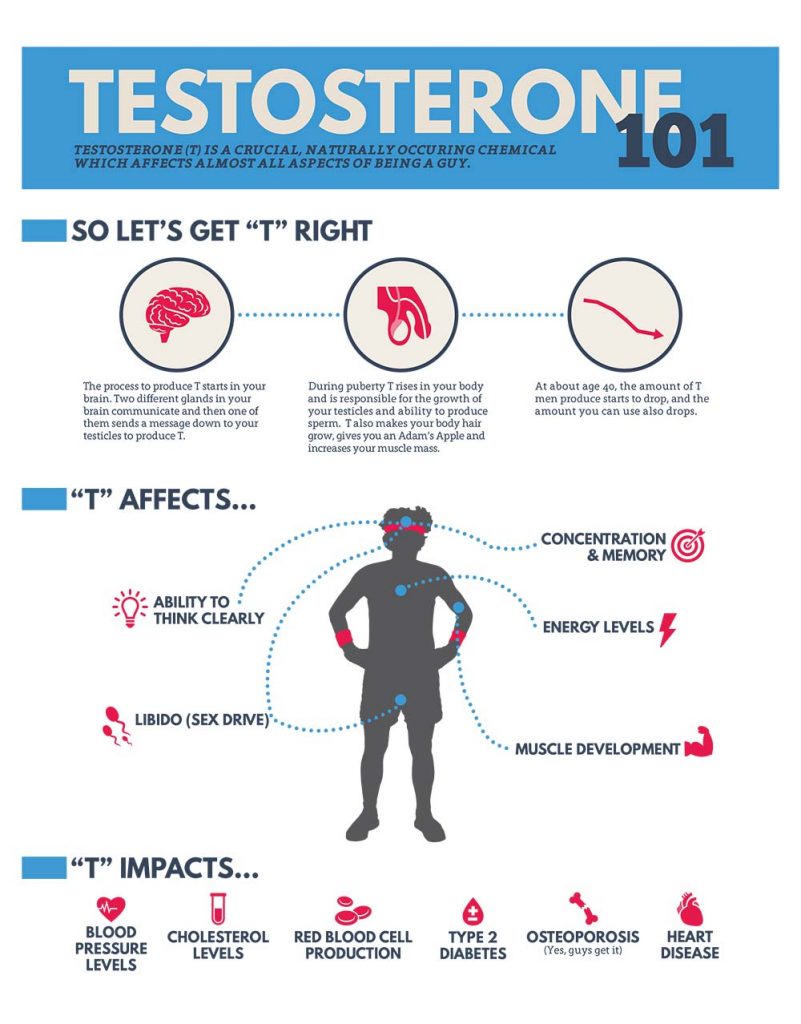When to seek help
by Admin
Posted on 29-03-2023 04:41 PM
Guidelines, including the most recent guidelines published by the endocrine society in 2010, recommend against screening asymptomatic patients and against case finding with tools such as the adam (androgen deficiency in the aging male) questionnaire. Guidelines do recommend considering case detection, which involves testing specific groups of patients that may be at higher risk of androgen deficiency due to certain comorbid diseases (type 2 diabetes mellitus, moderate to severe chronic obstructive pulmonary disease, obesity, etc. ) ( 11 ). Symptoms are mostly nonspecific.
 Even the sexual symptoms can be due to many other conditions, including vascular disease, chronic alcohol use, and depressive disorders.
Even the sexual symptoms can be due to many other conditions, including vascular disease, chronic alcohol use, and depressive disorders.
While you can’t reverse time or boost your natural testosterone production, you can: be open and honest with your doctor. Here at men ’s health, we’ve created a confidential environment where you can feel comfortable speaking frankly about your symptoms, including sexual issues. A man’s health is complex and needs to be thoroughly discussed for the best diagnosis and treatment. Choose a healthy lifestyle. Boost your chances for better health with a well-balanced, nutritious diet and daily physical activity — both of which will improve your mood, energy and help maintain muscle strength and mental sharpness. Seek help for mood changes.
Pituitary gland and hypothalamus
Low testosterone, otherwise known as hypogonadism, is a condition which affects many men as they age. Testosterone is produced in the adrenal glands and testes of males. The release of testosterone is regulated by the brain (hypothalamus and pituitary glands). Testosterone is a sex hormone essential for boys during puberty for development. Testosterone allows for the development of male physical features and sexual function. As boys exit puberty and enter adulthood, testosterone maintains muscle strength and mass, hair growth, bone density, sexual functions, energy and mood levels. Testosterone is also needed for sperm production.
Generally, testosterone levels are highest in the morning and lowest in the evening but fluctuation does occur with age.
With secondary hypogonadism, your testicles may be normal, but are incapable of producing enough testosterone, possibly due to interference from your hypothalamus and pituitary gland. Located in your brain, your hypothalamus and pituitary gland help regulate your production of hormones. The causes of interference or disruption can also be genetic or acquired later in life either through lifestyle choices or other underlying conditions. Some of the most common causes of secondary hypogonadism include:.
12 Signs of Low Testosterone
17/18 there's some concern that long-term use of testosterone may cause prostate cancer in older men. Men taking testosterone will need regular checkups to look for early signs of prostate cancer. This covers: all men over 50, men over 40 with a family history of prostate cancer, and all african american men.
Below are common signs and symptoms of low testosterone.
Medically reviewed testosterone is the primary sex hormone in men, and it is responsible for the development of many of the physical characteristics that are considered typically male, such as deep voice, hair growth, increased bone density, and many others. Testosterone, part of a hormone class known as androgens, is produced by the testicles after stimulation from the pituitary gland, which is located near the base of the brain and sends signals to a male’s testicles that spark feelings of sexual desire, notes medlineplus. While testosterone may be used to treat women, low levels of testosterone (also known as low t or hypogonadism ) is considered a male problem, according to a 2019 review.
In men, testosterone is made in the testicles and is an important part of a male’s sexual function and development. It’s what helps the development of features like facial and body hair, muscle strength, and a deeper voice among men. Testosterone also supports sperm production. Also called male hypogonadism or low t, low testosterone is estimated to affect almost 40% of men aged 45 and older. Low testosterone symptoms are a bit different in men compared to women, and they may include: decreased libido some men may also experience additional low testosterone level symptoms, such as: lower energy levels, endurance, and physical strength poor memory and focus.